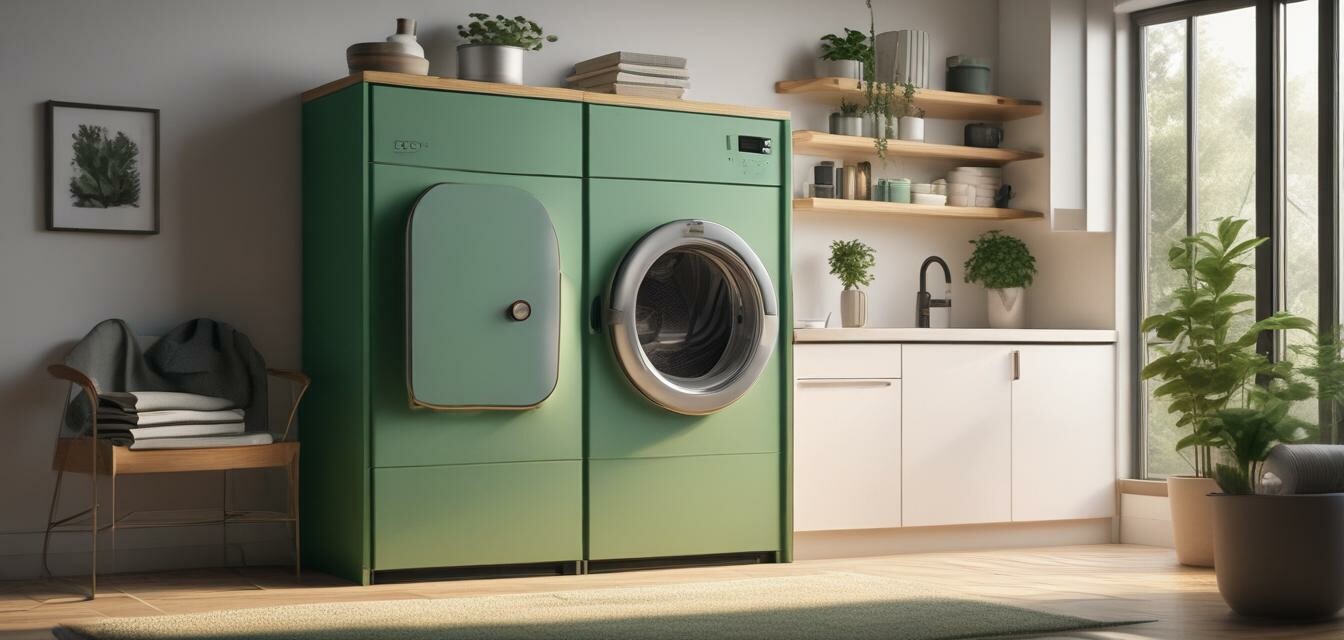
Eco-Friendly Washer Dryer Single Units: A Sustainable Choice
Key Takeaways
- Eco-friendly washer dryer units use less water and energy.
- These units often feature advanced technologies for higher efficiency.
- Choosing eco-friendly units contributes to reducing your carbon footprint.
- Understanding energy ratings can lead to informed purchasing decisions.
- Smart features in modern units can enhance sustainability.
As the demand for more sustainable living options rises, eco-friendly washer dryer single units have emerged as a promising solution. These units not only help in reducing the environmental impact but also deliver efficient performance and minimal resource consumption. In this article, we will explore the following aspects:
- What makes a washer dryer eco-friendly?
- The benefits of choosing eco-friendly products.
- Current trends in eco-friendly washer dryer technology.
- How to choose the right eco-friendly model for your home.
What makes a washer dryer eco-friendly?
Eco-friendly washer dryer single units are designed to minimize environmental impact through various features, including:
- Energy efficiency: Look for models with high Energy Star ratings to ensure that they consume less power during operation.
- Water-saving technologies: Many eco-friendly units incorporate designs that use less water per load, making them more sustainable.
- Recycled materials: Some manufacturers are utilizing recycled materials in their products, contributing to a more sustainable life cycle.
Benefits of choosing eco-friendly products
There are various advantages to selecting eco-friendly washer dryer units:
| Benefit | Description |
|---|---|
| Lower utility bills | By using less energy and water, these units can lead to substantial savings on monthly bills. |
| Reduced carbon footprint | Opting for eco-friendly models helps decrease greenhouse gas emissions. |
| High performance | Modern eco-friendly units offer advanced features that enhance cleaning efficiency. |
| Long-term sustainability | Many brands focus on creating products that last longer and are easier to recycle. |
Current trends in eco-friendly washer dryer technology
Staying updated with the latest trends can help you make an informed decision. Here are some current advancements in technology:
- Smart appliances: Many eco-friendly units are now equipped with smart technology, allowing users to monitor and control their laundry remotely.
- Wash and dry cycles: Users can now choose cycles that optimize both washing and drying times for energy efficiency.
- Load sensing: This technology allows the machine to recognize the weight of the laundry and adjust its water and detergent usage accordingly.
Choosing the right eco-friendly model
When selecting a sustainable washer dryer single unit, consider these tips:
Tips for beginners
- Review Energy Star ratings and certifications.
- Compare water consumption levels across different models.
- Read consumer reviews to gauge long-term performance and reliability.
- Explore our energy-efficient models category for the latest products.
- Consult the buying guides section for detailed product insights.
Conclusion
Incorporating eco-friendly washer dryer single units into your home not only benefits the environment but also leads to cost savings and efficient laundry routines. By understanding the key features and current trends in eco-friendly technology, you can help reduce your carbon footprint while enjoying the benefits of modern washing and drying solutions. For more information and product recommendations, visit our blog on news and trends to stay updated with the latest developments in the market.
Pros
- Lower energy and water consumption.
- High performance and efficiency.
- Contributes to environmental sustainability.
- Advanced features like smart technology.
Cons
- Initial purchase costs may be higher.
- Some features may require regular software updates.
- Limited options in certain price ranges.